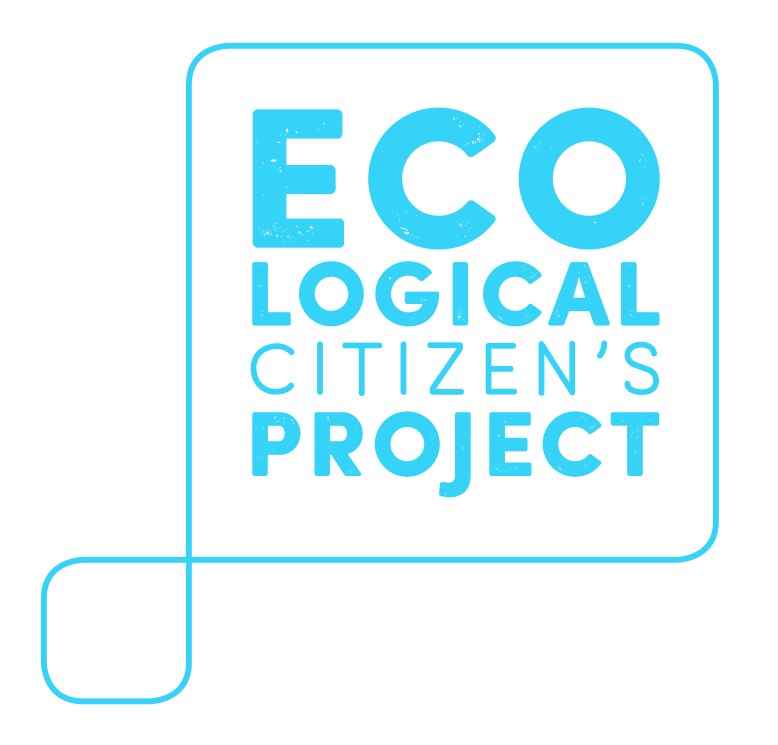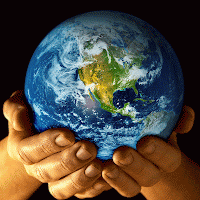Our Changing Climate - Reposted Blog + Response
As part of our ongoing mission to repurpose, we have decided to repost many of the articles written by Jason and Jocelyn over the past decade. Julia, the ECP’s Program and Communication Steward, will be writing responses to the work and how the previously published thoughts are still important today.
Response to Our Changing Climate
By Julia Tortorello-Allen
Just a few nights ago, I was sitting in the kitchen with my best friend, staring out the window at the freshly fallen snow. Both of us watched each snowflake with sorrow, as she hadn’t seen real snow since moving to Maryland years prior. We quickly fell into a lengthy, 2 AM discussion about the lack of changing seasons, the wars that will come out of Greenland’s ice melting, and the fears of what my children will have to face in the environmental crisis.
Like many others in my life, I have been consumed by the ever-present reality of climate change, and the severe damage that it’s doing to our planet. As an older Gen Z, born only a few years after the initial climate change conversations and research came to light, I was raised in a world already engaged in conversation and research about the issue. My childhood was full of natural disasters, or as I call them, human-crafted natural disasters, each of which forced us all to confront the horrifying reality of what we were creating. Throughout my youth, I watched the bickering politicians on TV only to find myself on another channel or video, five minutes later, about the Arctic melting, or the rapidly growing food deserts oppressing millions. Only a few months ago, I, like many other parents, hid inside and medicated my children through asthma attacks as the wildfire smoke traveled across the country, from California to New York, where it suffocated the sun out of the sky.
Climate change is affecting us all and has had a hand in changing the national and global economy. According to the National Centers for Environmental Information, “In 2023, there were 28 confirmed weather/climate disaster events with losses exceeding $1 billion each to affect the United States. These events included 1 drought event, 4 flooding events, 19 severe storm events, 2 tropical cyclone events, 1 wildfire event, and 1 winter storm event. Overall, these events resulted in the deaths of 492 people and had significant economic effects on the areas impacted. The 1980–2023 annual average is 8.5 events (CPI-adjusted); the annual average for the most recent 5 years (2019–2023) is 20.4 events (CPI-adjusted).”
*Map published by the National Centers for Environmental Information
This took me aback when I first read it, not wanting to truly internalize the fact that our annual average of 1 billion dollar climate disasters had essentially doubled throughout the 2010s. Then that shock turned into anger as I learned that from 2010-2019 there were 131 billion dollar disasters in the US, 64 more than there were in the 2000s. From 2019-2023, there were 102 billion dollar national disasters, and in 2023 alone, there were 28. For perspective, there were 33 throughout all of the 1980s. Each of these events came at a cost; destruction of land, displacement of residents, death, and billions of dollars that we had to allocate to post-disaster damage control.
So much of the time we are all told that the problem is too extreme, and there is no way to come back from the predicament that we find ourselves in. This type of thinking is especially dangerous when coupled with a high-paced society, and governmental powers that work to make us all think that everything is ok, even when it's not. This leads to individuals who do believe in the coming crisis pushing the problem out of their minds, either because they don’t believe they can make a change, or because they have the false hope that someone else will come up with a solution.
If we all live in frozen fear and fail to make the important changes and choices that are within our reach, we will only continue to make climate change and the climate crisis worse. Though there might not be a way to fix the issue completely, we can certainly all do better than we are now. Each small effort makes a difference, from the way that you consume and produce, to the choices that you make in your own home and on your land. And we all need to harness the fear and our unique voices to prompt change.
Our Changing Climate - Original Post
By Jason Angell
In the wake of Superstorm Sandy, I, along with many others, have been thinking about climate change. I was engaged in a conversation just the other night with a family friend who does not subscribe to the argument that indeed our planet is warming due to increased emissions of CO2. So I asked him, "Why do you choose not to believe in it?" He immediately replied by asking me why I do believe.
I believe for three reasons.
First, I have concern for future generations of humans, wildlife and plants and the overall life of the planet. I do not want us or them or it to become extinct prematurely. Just as I exercise regularly to be sure I live long and prevent premature death, or someone quits smoking cigarettes or another person receives heart bypass surgery to do just the same, I am willing to take action to prevent the premature extinction of our earth and its inhabitants.
Second, I am a scientist. I have read research on global warming and climate change and understand the use of statistical models to predict the future, and based on my read of the decades of evidence, see a potential for truth. In other words, the evidence is strong enough to me that I reject the possibility that the patterns we are observing are happening by chance alone.
Third, I appreciate the argument's ability to raise ecologic consciousness. If I choose to believe that the warming of our climate, rising of sea levels, and melting of ice caps are a result of me and my fellow humans, it makes me very conscious of what I do on a daily basis. What natural resources do I consume, and can I potentially reduce my consumption? How far do products travel to get to me, and can I choose local purveyors to reduce that travel time? This daily self-reflection, I think, is healthy, because it makes me consider things in a broader perspective. It connects me to so many layers and nodes around the globe and empowers me to realize that what I do matters.
My friend's response to my question of why he chooses not to believe can be boiled down to two reasons, unfortunately (mind you, I'm boiling them down): because the solution costs too much and he doesn't like being told what to do. It's a fascinating response, and I wonder if there are other reasons to shrug off the evidence of climate change... in spite of the storm that flooded NY and NJ after years of rising sea levels and a changing jet stream. I am very willing to listen.



